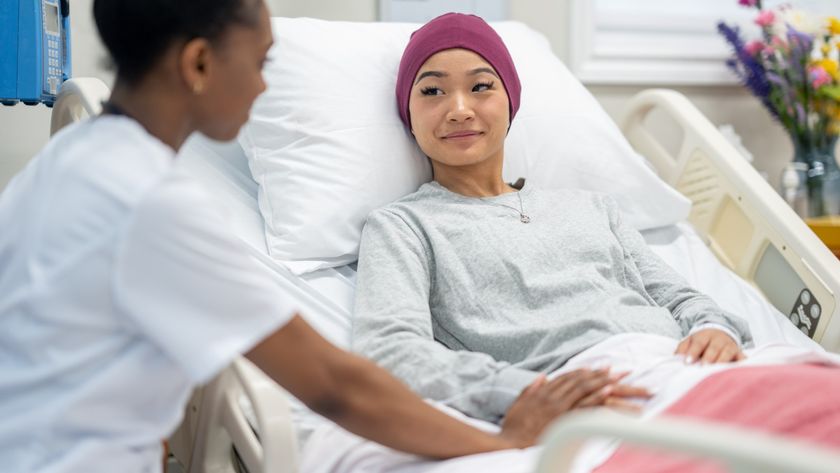Women with Cancer May Not Get Fertility Advice

Men receive better guidance than women on how to preserve fertility during and after cancer treatment, according to a small new study from Scotland.
In interviews with young men and women who had been recently diagnosed with cancer, researchers found that at treatment consultations with doctors, men were encouraged to store their sperm prior to starting treatment, but options for preserving fertility were less frequently discussed with women.
Additionally, there was a protocol in place for health care providers to refer men to a local sperm bank, whereas this was not the case for women and egg storage.
"At the time of diagnosis, patients should be provided with accurate information about the potential risk of impaired fertility after treatment for cancer," regardless of whether there are nearby facilities for egg or sperm storage, said study co-author Valerie Peddie, a fertility nurse and midwife at the University of Aberdeen’s School of Medicine and Dentistry.
Infertility can be a side effect of cancer treatment, and discussions about preserving fertility are a growing issue as more younger people are being treated for cancer.
When asked about why they hadn't discussed fertility preservation with women, health care professionals said that the need to start treatment seemed more urgent in women’s cases, and that the first treatment would not affect fertility.
They also said that the first meetings after diagnosis could overwhelm the patients with information, so it seemed reasonable to wait to discuss fertility when the topic became more pressing. Almost all patients, male and female, received extensive written information about treatment options, which included a section on fertility preservation.
Sign up for the Live Science daily newsletter now
Get the world’s most fascinating discoveries delivered straight to your inbox.
"In reality, the immediate emphasis is often on treatment, with little time available to discuss future fertility or options for fertility preservation,” Peddie said.
The researchers interviewed 16 men and 18 women between age 17 and 49, who were recently diagnosed about their experience discussing their treatment and fertility options. The researchers also interviewed 15 health care professionals.
Researchers acknowledged the study had a small sample size, and suggested that more research be done with a larger population.
The paper was published today (May 30) in BJOG: An International Journal of Obstetrics and Gynaecology.
Pass it on: Cancer can compromise fertility for men and women, but health care professionals may be better equipped to advise men on how to prevent infertility than women.
Follow MyHealthNewsDaily on Twitter @MyHealth_MHND. Find us on Facebook.












